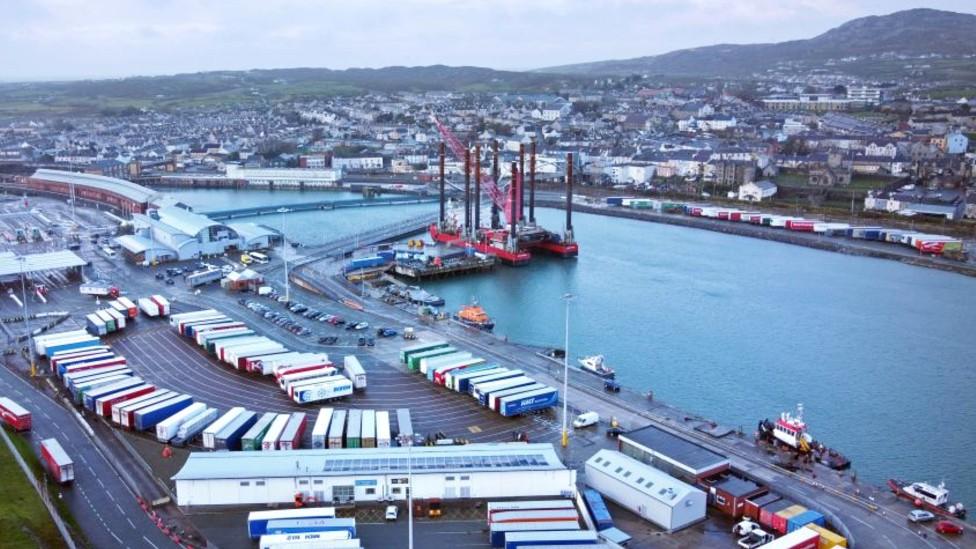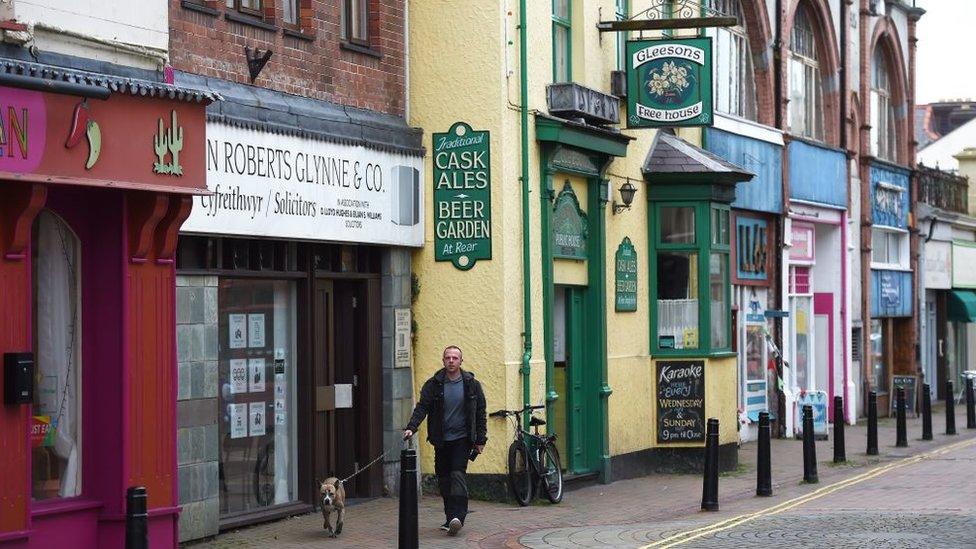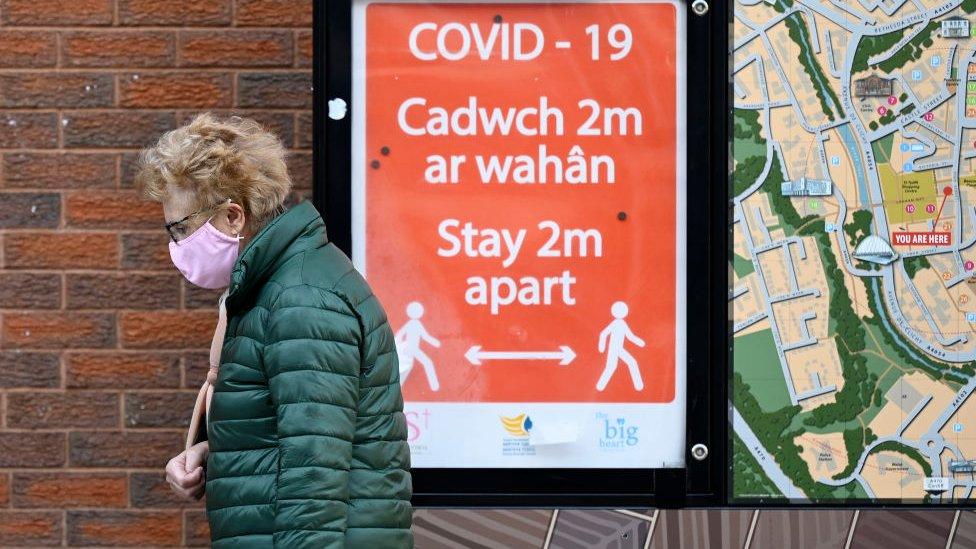Covid: Holyhead and Holy Island residents urged not to travel
- Published

Holyhead has more positive tests than the rest of Anglesey
People living in a town experiencing a Covid flare-up have been urged not to travel at the weekend.
Anglesey council asked residents in Holyhead and Holy Island not to travel unless it was essential.
It said it was "extremely concerned" about the situation and asked others not to visit the areas.
In Holyhead there have been 54 positive Covid cases in the past seven days, compared with 89 for the whole of the island.
The town had an average case rate of 503.8 per 100,000 over that period compared with 127.1 for the whole of Anglesey.
On Friday the council tweeted, external: "We are extremely concerned about the coronavirus outbreak in Holyhead and Holy Island.
"Given the high incidence, we're urging local residents not to travel this weekend unless essential.
"We're also urging residents not to visit Holy Island or Holyhead this weekend unless essential."
On 13 March the nation's stay-at-home rules were lifted and replaced by a "stay local" message.
People are expected to stick to a five-mile travel rule, though there is flexibility for those in rural areas.
Earlier this week council leader Llinos Medi Huws said schools in the town could be closed in a bid to curb infection rates.
Speaking at Wednesday's coronavirus briefing, Health Minister Vaughan Gething said the Welsh government was "concerned" about growing rates of the virus in Merthyr Tydfil, Conwy and Anglesey.
He said in the case of Anglesey in particular, it was important to gain an understanding of why case numbers were rising.
Allow X content?
This article contains content provided by X. We ask for your permission before anything is loaded, as they may be using cookies and other technologies. You may want to read X’s cookie policy, external and privacy policy, external before accepting. To view this content choose ‘accept and continue’.

"We are concerned about those three authorities in particular, because we're aware they have the most visible rise in case rates," he said.
"If they'd followed the national trend overall then we would have seen a further reduction, so they do make a difference to the overall figure.
"In the one sense, it makes it much more visible, because the rest of Wales has been able to behave collectively together in such a way where we've been able to keep coronavirus rates low."
Related topics
- Published17 March 2021

- Published18 March 2021

- Published27 May 2022
